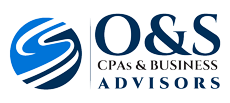It seems that it’s a weekly occurrence that I read that somewhere another Ponzi scheme bilked a bunch of unsuspecting investors. Given that this type of fraud has been around since the 1800’s and made famous in the 1920’s by Charles Ponzi, you would think the public would wise up to them. Apparently the fraudsters are getting sophisticated faster than the public is getting wiser.
This one caught my eye because the perpetrator, Ron Roach, is (was) a CPA and held an SEC license. Apparently Roach and a partner bilked investors out of over $900 million in cash plus more in debt instruments, promising high returns and tax credits on investments in solar generators. They falsified financial statements and marketed the investments to clients and the public. You can read the whole story here in Financial Advisor Magazine: https://www.fa-mag.com/news/sec–former-california-broker-and-cpa-barred-over–1b-ponzi-scheme-53022.html?section=43
So, how can protect yourself from something this elaborate? The first rule of avoiding a scam, is “If it sounds too good to be true, it probably is”. Let common sense be your guide. Ask yourself if some investment deal that is being peddled to you is such a great idea, why do the sellers have to beat the bushes for public investors? Why didn’t institutional investors snap it up? I witnessed the creation and packaging of a tax shelter at one point many, many, years ago, and it was basically a bunch of poor investments that the syndicator couldn’t unload through normal channels. They dressed them up as a tax shelter and sold it to the public.
Another way to help protect yourself is to do your own homework. Don’t rely solely on the person selling you something for research. Ask another broker to evaluate it or run some history for you. If it’s a publicly traded deal there will be lots of information available. If it’s a private deal, depending on the nature of the investment you may want to go on title, physically inspect the location(s), and request audited financial statements. If the latter, don’t be shy about asking for a copy of the auditor’s most recent Peer Review report, and then contacting the peer reviewer to confirm that they actually issued said report. You can also research the licenses of the individuals offering the investment to you through the issuing agencies. If there are any previous complaints they will be public information.
At the end of the day it’s very difficult to protect against all forms of scams or frauds. If you are thinking of investing your life’s savings in one deal, STOP! No matter who you are talking to or how much you trust them that is never a good idea unless you are prepared to lose everything and have a good backup plan. Just ask the former employees at Lincoln Savings and Loan and how much they trusted Charles Keating.
